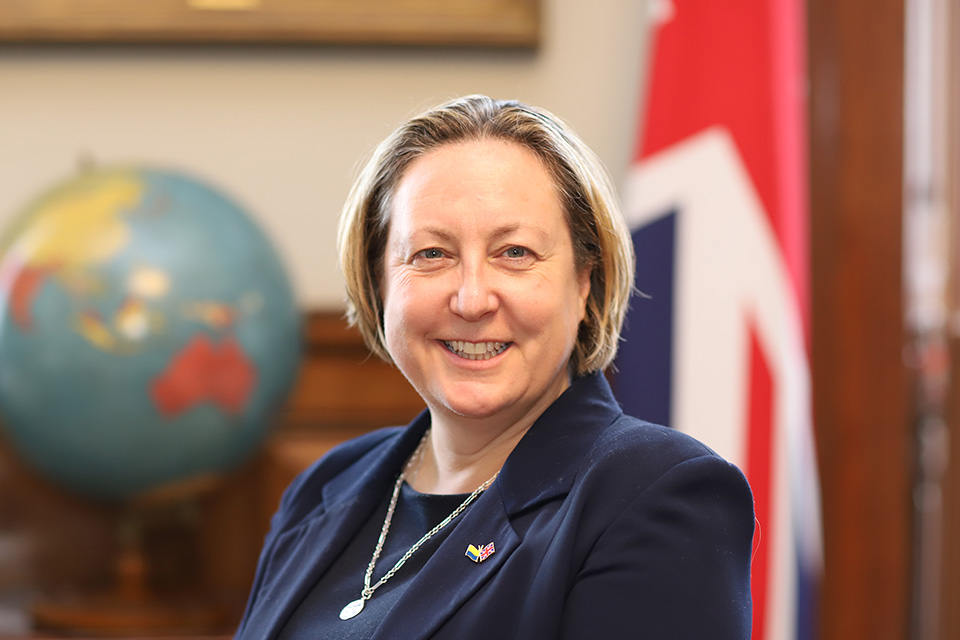International Trade Secretary's speech at Nor-Shipping Conference
The International Trade Secretary's keynote speech at the Nor-Shipping Conference in Oslo.

Good morning everyone.
It is a real pleasure to be here in Lillestrøm at this great maritime conference.
The UK and Norway share a long and close partnership. One bound by our common history as great seafaring nations.
And in the face of President Putin’s barbaric and illegal invasion of Ukraine, our partnership is more important to Europe’s security than ever before.
We are both freedom-loving democracies, committed members of NATO, and outward-looking maritime nations.
And in the last month, we have demonstrated our continuing commitment to these principles clearly to the world - as HMS Prince of Wales, the UK’s largest warship, led the NATO taskforce in the largest Operation Cold Response exercise for three decades.
In lockstep with our allies, we have launched an unprecedented package of economic sanctions against Russia. Asset freezes and travel bans are restricting cashflows to reduce Putin’s ability to fund his war machine.
We have targeted oligarchs, members of the Russian Duma, and those closest to Putin. Together, we must make sure they pay the price for Russia’s horrific crimes in Ukraine.
As the UK, USA, EU and Norway stand firm together on coordinating sanctions we reduce Putin’s ability to find diversionary routes.
Looking ahead, trade, investment, and the partnerships between these like-minded nations will be vital to starving Putin of his energy sales.
The West has acknowledged that they have relied on Russian energy for far too long.
So, through new trade and investment relationships around energy we can end this dependence, and starve Putin’s war machine of the funding it needs.
First, we must use our relationships with reliable energy partners like Norway to meet our needs, protect our supply chains, and steady the global market.
The UK imported a third of its gas from Norway last year, and we greatly value that long-standing, mutually beneficial partnership.
Secondly, we must use our trade and investment relationships to grow our green economy.
Over a quarter of the UK’s electricity needs now come from renewables, and we are working with partners like Norway to drive investment and harness the clean energy potential of the UK.
Last year, our two nations became connected by the world’s longest under-sea electricity cable. This is enabling surplus Norwegian hydroelectric power to flow to the UK, and when the UK has an oversupply of wind power, exports of affordable renewable energy to move in the opposite direction.
Across our economies, the more we trade and the more we invest, the more prosperous we will become, and we can use these gains to build a green economy that will eliminate Russian fuel from our energy mix once and for all.
Of course, almost all this trade will be underpinned by the maritime sector.
Around 90% of our traded goods are carried by sea. Virtually all international data - and new energy - travels through subsea cables. And by the middle of this century, global maritime trade volumes are expected to treble.
This trade creates a huge opportunity to revitalise coastal communities, boost growth, and tighten those bonds between nations. But it must not come at the expense of the environment.
Shipping currently accounts for around 2.5% of global emissions, but this share could more than treble by 2050. And the UK is committed to leading the world to build a cleaner, greener, more sustainable maritime network.
At COP 26 in Glasgow last year, we were the lead signatory of the Clydebank Declaration. A coalition of 22 countries, including Norway, that committed to establishing at least six zero-emission, green shipping corridors by the middle of the decade.
As an island nation with a proud maritime heritage, just as in Norway, shipbuilding is part of the UK’s national identity. And where we once built the world’s most powerful vessels, now we must build its greenest.
The UK already holds a global market share of around 5% in green shipbuilding, as well as being a world leader in subsea technology.
We are investing over £200 million to launch the Shipping Office for Reducing Emissions to fund more innovative green research.
And I know that across the shipping industry the Norwegian government and businesses are leading the race to develop those low-carbon solutions.
But decarbonising shipping will be a global effort. And as an independent trading nation once again, we in the UK will use the full arsenal of tools at our disposal, including our independent seat at the WTO, to tackle the protectionism that pervades in maritime trade.
Through free and fair trade, we can share both our nations’ expertise, creating high-skilled jobs, and accelerate the growth the global maritime industry’s green transition requires.
In maritime, and across our economies, trade enables the exchange of the ideas, technology, and expertise that benefit us all.
And this is what Global Britain is championing.
We are not looking inwards – we are focused on trading with the world.
Trade is how we will join forces with our allies to protect our planet, electrify the global economy, and stand as a bulwark against aggressors.
The likes of Putin will not succeed. They won’t divide us. Because we know that we are stronger when we trade together, stand together, and fight for progress together.
All this will only be possible with a strong, secure, and green global maritime sector. And this is exactly what the UK is determined to build.
Thank you.